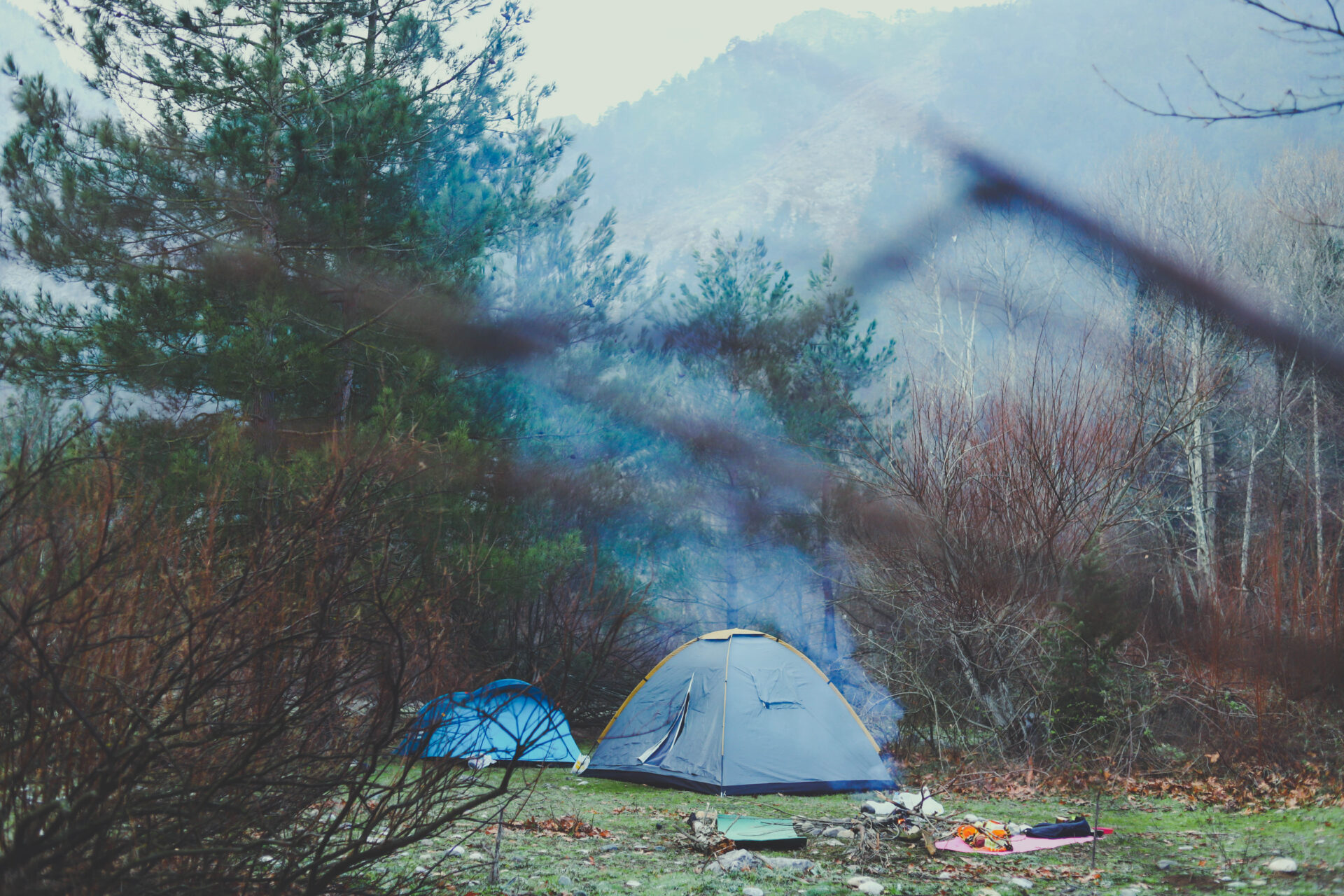Japan is a country known for its breathtaking natural landscapes and rich cultural heritage. It is a popular destination for adventure seekers and nature enthusiasts, with a wide range of camping sites that offer unique experiences. However, with the growing concern for the environment, it is important to choose campsites that are eco-friendly and sustainable. In this article, we will explore some of the best eco-friendly camping sites in Japan, where you can immerse yourself in nature while minimizing your impact on the environment. From stunning mountain ranges to serene coastal areas, these campsites offer a perfect escape for those seeking a sustainable and responsible camping experience.
Introduction to Eco-Friendly Camping in Japan
Camping is a popular outdoor activity in Japan, and with the country’s stunning natural beauty, it’s no surprise that many camping sites are located in scenic spots. However, camping can also have a negative impact on the environment if not done responsibly. Eco-friendly camping, also known as sustainable camping, is a way to enjoy the great outdoors while minimizing the impact on the environment.
Eco-friendly camping in Japan is becoming increasingly popular, as more people are becoming aware of the importance of protecting the environment. Many camping sites in Japan are implementing sustainable practices, such as using renewable energy sources, reducing waste, and preserving local ecosystems.
In this article, we will explore the best eco-friendly camping sites in Japan, as well as the features and benefits of eco-friendly camping. We will also provide tips for eco-friendly camping in Japan and discuss sustainable practices and challenges in the camping industry. By the end of this article, you will have a better understanding of how to enjoy camping in Japan while minimizing your impact on the environment.
Top Eco-Friendly Camping Sites in Japan
Japan offers a wide range of camping sites, from national parks to privately-owned campgrounds, and many of them are implementing eco-friendly practices. Here are some of the top eco-friendly camping sites in Japan:
1. Fuji-Hakone-Izu National Park
Located in the central part of Honshu Island, Fuji-Hakone-Izu National Park is one of the most popular camping destinations in Japan. The park offers a variety of camping sites, including cabins and tent sites, and is known for its stunning views of Mount Fuji. The park has implemented eco-friendly practices such as using solar energy for lighting and heating, and recycling waste.
2. Oze National Park
Oze National Park, located in the northern part of Honshu Island, is a popular destination for hikers and campers. The park offers several camping sites, including tent sites and cabins, and is known for its beautiful marshlands and forests. The park has implemented eco-friendly practices such as using composting toilets and promoting the Leave No Trace principles.
3. Iriomote-Ishigaki National Park
Located in Okinawa, Iriomote-Ishigaki National Park is a tropical paradise with stunning beaches and lush forests. The park offers several camping sites, including tent sites and cabins, and is known for its unique wildlife, such as the Iriomote cat. The park has implemented eco-friendly practices such as using solar energy for lighting and reducing waste through recycling and composting.
4. Tsushima Wildlife Conservation Center
Located on Tsushima Island, which is located between Japan and Korea, the Tsushima Wildlife Conservation Center offers a unique camping experience in a natural setting. The center offers tent sites and cabins, and is known for its conservation efforts to protect the island’s wildlife, such as the Tsushima leopard cat. The center has implemented eco-friendly practices such as using solar energy for lighting and reducing waste through recycling.
These are just a few examples of the many eco-friendly camping sites in Japan. When planning your next camping trip, consider choosing a site that prioritizes sustainable practices to minimize your impact on the environment.
Features of Eco-Friendly Camping Sites in Japan
Eco-friendly camping sites in Japan have several features that set them apart from traditional camping sites. Here are some of the key features of eco-friendly camping sites in Japan:
1. Use of Renewable Energy Sources
Eco-friendly camping sites in Japan often use renewable energy sources such as solar or wind power for lighting and heating. This reduces dependence on non-renewable energy sources and helps to minimize the impact on the environment.
2. Recycling and Waste Reduction
Many eco-friendly camping sites in Japan have implemented recycling programs and encourage visitors to reduce waste. This includes providing recycling bins and composting facilities, as well as promoting the Leave No Trace principles.
3. Preservation of Local Ecosystems
Eco-friendly camping sites in Japan prioritize the preservation of local ecosystems and wildlife. This includes minimizing human impact on the environment, such as avoiding damage to plants and animals, and protecting natural resources such as water and soil.
4. Education and Awareness
Many eco-friendly camping sites in Japan provide educational resources and promote awareness of environmental issues. This includes providing information about sustainable practices, as well as encouraging visitors to learn about the local flora and fauna.
5. Use of Eco-Friendly Materials
Eco-friendly camping sites in Japan often use eco-friendly materials such as biodegradable soap, reusable water bottles, and eco-friendly cleaning products. This helps to reduce the use of harmful chemicals and materials that can harm the environment.
These are just a few of the features of eco-friendly camping sites in Japan. When choosing a camping site, look for these features to ensure that you are minimizing your impact on the environment and supporting sustainable practices.
Benefits of Eco-Friendly Camping in Japan
Eco-friendly camping in Japan offers several benefits, both for the environment and for campers. Here are some of the key benefits of eco-friendly camping in Japan:
1. Minimizes Environmental Impact
Eco-friendly camping sites in Japan prioritize sustainable practices that reduce the impact on the environment. By using renewable energy sources, reducing waste, and preserving local ecosystems, eco-friendly camping helps to protect natural resources and wildlife.
2. Supports Sustainable Tourism
Choosing an eco-friendly camping site in Japan supports sustainable tourism, which promotes responsible travel and benefits local communities. Many eco-friendly camping sites in Japan are owned and operated by local residents, which helps to support the local economy.
3. Promotes Health and Wellness
Camping in Japan offers an opportunity to connect with nature and promote health and wellness. Eco-friendly camping sites often provide access to hiking trails, outdoor activities, and fresh air, which can have a positive impact on mental and physical health.
4. Educational Opportunities
Many eco-friendly camping sites in Japan offer educational opportunities to learn about the environment and sustainable practices. This can include guided tours, educational programs, and information about local flora and fauna.
5. Cost-Effective
Eco-friendly camping in Japan can be a cost-effective way to enjoy the outdoors. Camping fees are often lower than traditional accommodations, and eco-friendly camping sites may offer amenities such as shared kitchens and bathrooms that can help to reduce expenses.
These are just a few of the benefits of eco-friendly camping in Japan. By choosing an eco-friendly camping site and practicing sustainable camping, you can enjoy the outdoors while minimizing your impact on the environment and supporting local communities.
Tips for Eco-Friendly Camping in Japan
If you’re planning a camping trip in Japan, there are several tips you can follow to minimize your impact on the environment and practice sustainable camping. Here are some tips for eco-friendly camping in Japan:
1. Choose Eco-Friendly Camping Sites
When planning your camping trip, research eco-friendly camping sites in Japan and choose one that prioritizes sustainable practices. Look for features such as renewable energy sources, recycling programs, and education and awareness initiatives.
2. Practice Leave No Trace Principles
The Leave No Trace principles are a set of guidelines for minimizing human impact on the environment. These principles include packing out all trash, avoiding damage to plants and wildlife, and staying on designated trails. Practice these principles when camping in Japan to minimize your impact on the environment.
3. Use Eco-Friendly Products
Choose eco-friendly camping products such as biodegradable soap, reusable water bottles, and eco-friendly cleaning products. This helps to reduce the use of harmful chemicals and materials that can harm the environment.
4. Reduce Energy Consumption
Reduce energy consumption by turning off lights and electronics when not in use, and using natural light and ventilation whenever possible. This helps to minimize the use of non-renewable energy sources and reduce your carbon footprint.
5. Minimize Waste
Minimize waste by packing reusable containers and utensils, and avoiding single-use products such as disposable plates and cups. Use recycling and composting facilities when available, and pack out all trash when leaving the campsite.
These are just a few tips for eco-friendly camping in Japan. By following these tips and practicing sustainable camping, you can enjoy the outdoors while minimizing your impact on the environment.
Sustainable Practices for Camping in Japan
Sustainable practices for camping in Japan are important for minimizing the impact on the environment and preserving natural resources. Here are some sustainable practices that you can follow when camping in Japan:
1. Use Renewable Energy Sources
Use renewable energy sources such as solar or wind power for lighting and heating. This helps to minimize the use of non-renewable energy sources and reduce your carbon footprint.
2. Reduce Water Consumption
Reduce water consumption by using low-flow showerheads and faucets, and taking shorter showers. Collect rainwater for washing dishes and clothes, and avoid wasting water by turning off taps when not in use.
3. Minimize Waste
Minimize waste by packing reusable containers and utensils, and avoiding single-use products such as disposable plates and cups. Use recycling and composting facilities when available, and pack out all trash when leaving the campsite.
4. Practice Leave No Trace Principles
Practice the Leave No Trace principles, which include packing out all trash, avoiding damage to plants and wildlife, and staying on designated trails. This helps to minimize human impact on the environment and preserve natural resources.
5. Support Local Communities
Support local communities by choosing eco-friendly camping sites that are owned and operated by local residents. This helps to support the local economy and promote sustainable tourism.
These are just a few sustainable practices that you can follow when camping in Japan. By practicing these practices, you can minimize your impact on the environment and preserve natural resources for future generations.
Challenges and Solutions for Eco-Friendly Camping in Japan
Camping is a great way to explore the natural beauty of Japan while enjoying a peaceful break from the hustle and bustle of city life. However, camping also has its environmental impacts, which can harm the very nature we seek to enjoy. Here are some of the challenges and solutions for eco-friendly camping in Japan.
Challenge: Waste Management
One of the biggest environmental challenges of camping is managing waste. When camping, it’s important to pack out all your trash, including food scraps, and properly dispose of it in designated trash bins. However, not all campsites have proper waste management systems in place.
Solution:
Choose campsites that have proper waste management systems in place, such as recycling and composting facilities. Bring reusable containers and utensils to reduce waste. Pack out all your trash and dispose of it properly.
Challenge: Water Conservation
Water is a precious resource, and camping can put a strain on local water sources. Washing dishes, taking showers, and flushing toilets can all use a significant amount of water.
Solution:
Choose campsites that have water conservation measures in place, such as low-flow toilets and showers. Bring biodegradable soap and use it sparingly. Consider using a portable water filtration system to purify water from natural sources.
Challenge: Energy Use
Camping often requires the use of energy for cooking, lighting, and charging devices. Traditional fuel sources such as propane and charcoal can have negative environmental impacts.
Solution:
Choose campsites that offer alternative energy sources, such as solar-powered lighting and charging stations. Use rechargeable batteries and solar-powered chargers for your devices. Consider using a portable stove that uses renewable fuel sources, such as wood or biomass.
Challenge: Wildlife Management
Camping can disturb local wildlife, which can have negative impacts on their behavior and habitat.
Solution:
Choose campsites that have designated camping areas and follow all rules and regulations regarding wildlife management. Store food in bear-proof containers and dispose of waste properly to avoid attracting wildlife. Keep noise levels low and avoid disturbing wildlife habitats.
Challenge: Education and Awareness
Many campers are not aware of the environmental impacts of their camping activities.
Solution:
Educate yourself and others about the environmental impacts of camping and how to minimize them. Follow Leave No Trace principles and encourage others to do the same. Participate in eco-friendly camping events and initiatives to raise awareness and promote sustainable practices.
By addressing these challenges and implementing sustainable solutions, we can enjoy the beauty of Japan’s natural environment while minimizing our impact on it.
Conclusion and Future of Eco-Friendly Camping in Japan
Eco-friendly camping in Japan is a great way to enjoy the natural beauty of the country while minimizing your impact on the environment. By choosing eco-friendly campsites, practicing sustainable camping practices, and being mindful of the challenges and solutions, we can ensure that future generations can also enjoy the beauty of Japan’s natural environment.
The Importance of Eco-Friendly Camping
Camping is a great way to connect with nature, but it also has environmental impacts. By practicing eco-friendly camping, we can minimize our impact on the environment and protect the natural beauty of Japan for future generations. Eco-friendly camping also supports local communities and promotes sustainable tourism.
The Future of Eco-Friendly Camping in Japan
The future of eco-friendly camping in Japan is bright. Many campsites are implementing sustainable practices, such as using renewable energy sources and managing waste properly. There is also a growing awareness among campers about the importance of eco-friendly camping practices.
As more people become aware of the environmental impacts of camping, we can expect to see more campsites implementing sustainable practices and more campers practicing eco-friendly camping. The future of eco-friendly camping in Japan is one of sustainable tourism, responsible stewardship of the environment, and continued enjoyment of the natural beauty of Japan.
Whether you’re a seasoned camper or new to the camping experience, eco-friendly camping in Japan is a great way to enjoy the natural beauty of the country while minimizing your impact on the environment. By following sustainable practices, choosing eco-friendly campsites, and being mindful of the challenges and solutions, we can ensure that future generations can also enjoy the beauty of Japan’s natural environment.





Leave a reply